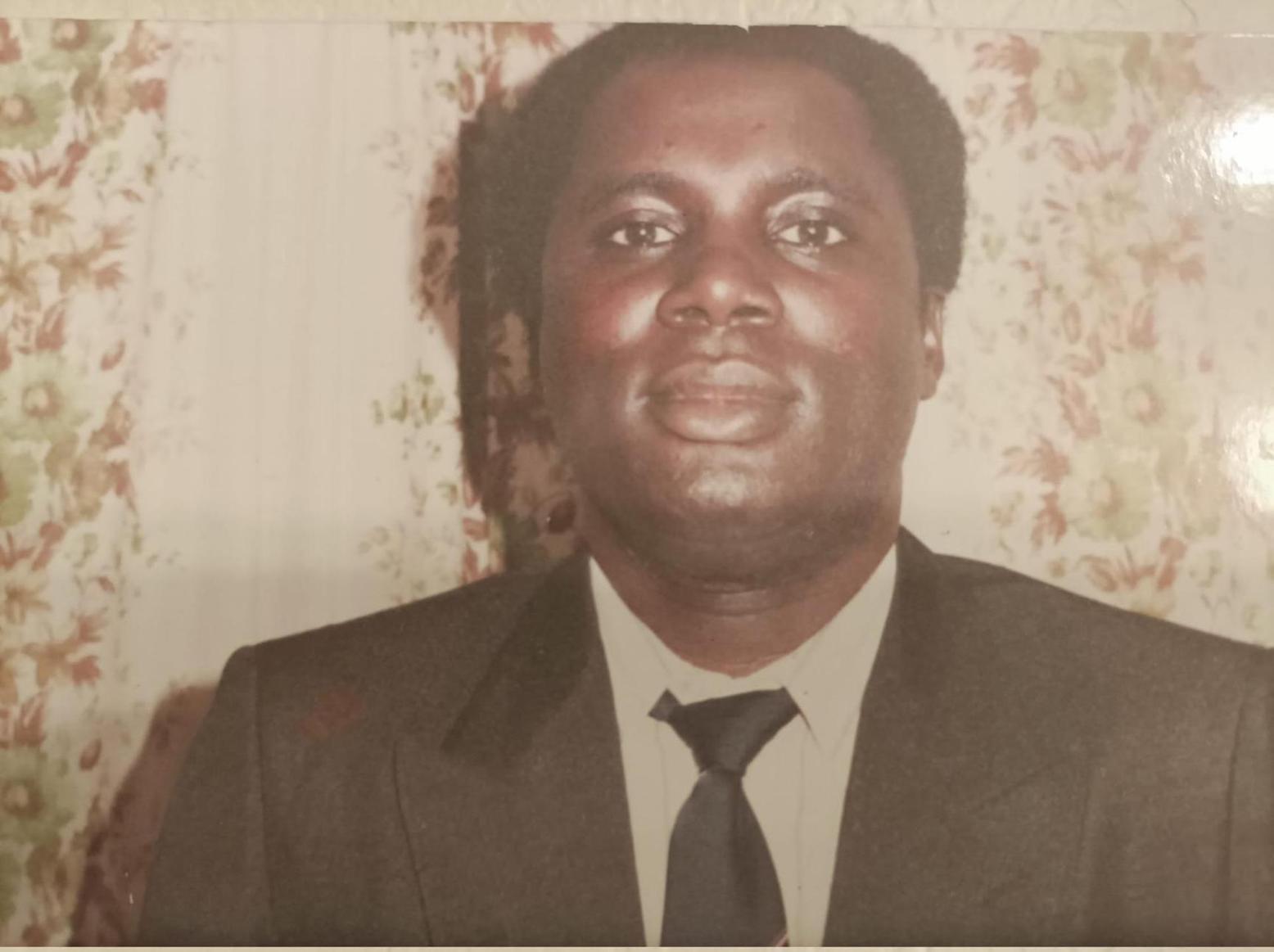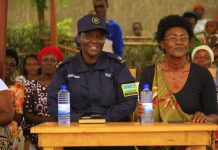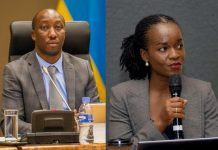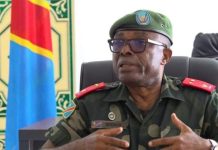Africa-Press – Rwanda. In the origins of Rwanda’s press was a private media house which can be traced during the colonial era when catholic church mission was intensely spreading the gospel.
No wonder, the media house called Kinyamateka in 1933 and Dialogue in 1967 had an editorial line with a tendency to promote agenda of the church.
However, as the International Media Support(IMS) writes, a real independent private press emerged in Rwanda in 1988: “Kanguka” (=wake up!)a newspaper in Kinyarwanda, was created….
In its assessment mission entitled The Rwanda media experience from the genocide, IMS writes that Kanguka denounced corruption scandals, which brought threats on its journalists and supporter. But the independent newspaper gave new dynamic to the church’s publication, Kinyamateka, which became more critical again.
The historical background of Rwanda’s press is a story for another day, but the man behind Kanguka, Rwabukwisi Vincent who was most known to his alias of Ravi could be a benchmark in Rwanda’s press freedom.
Rwabukwisi was born in the era of injustice, August 16, 1959, the year when the extremists Hutu launched their anti Tutsi campaign. Sadly, it all started in his Gitarama prefecture.
After primary school in his Murama Commune in the current Ruhango district, he won the exam for Kabgayi Minor Seminary whose patron Saint Leon. But, half away, Rwabukwisi was dismissed from school, because, despite being Hutu, he became victim of segregation that had started to take several ramifications.
Rwabukwisi kept trying to return to school, but the regionalism also kept intensifying and reached its culmination in the second Republic under President Juvenal Habyarimana. His dream to have more education opportunity in Rwanda vanished, and he tried small businesses.
Towards 1987, Rwabukwisi started a form of journalism with an entertainment style that intended to denounce the abuse of power in his time.
In his style, he chose a character called Kazagwa, a stubborn person he used to criticize the ruling power. This style showed the public what Rwabukwisi was capable of doing in journalism, and, after several advices, he upgraded to a more or less mainstream newspaper called Ejo Nzamera nte, which openly showed the social economic crisis of the country and the role the government was playing in its escalation.
But this was not enough, too. Amid efforts to raise the voice high, he planned to start a more structured newspaper called Kanguka.
At this level, he had acquired some short courses in journalism and Management in the region and abroad, which gave him a greater understanding of the adventure he was to embrace.
Knowing that he could not do it alone, he did a field visit to the National University of Rwanda in 1988 where he expected to pitch his project to whom is concerned, so as to seek partners.
Adrien Rangira is one of people who responded to the call.
In an interview with KT Press, Rangira recalls everything around Kanguka, the challenges and opportunities it brought to the founder and partners and the ultimate price each of them had to pay for having a connection whatsoever with the media house.
“The time Kanguka was born, there was a socio-political discontent in the country following the punctuated poverty. Rwabukwisi accepted to bring out the abuse that were accelerating this poverty and condemned them in strongest terms,” Rangira said.
“He quickly made Kanguka a newspaper people were looking for, because it could afford to provide content other media outlets couldn’t dare to publish.”
After putting the bar high, Rwabukwisi drove to Butare to seek contributors from the intellectuals at University.
“From his visit to university, Rwabukwisi got four partners who would contribute content and other ideas and those include Kayiranga Marcelin, Mudatsikira Joseph, Bazimaziki Obed and myself,” recalls Rangira.
They were contributing anonymously fearing for their education disruption.
First targets among Ibyitso-RPF presumed accomplices
Rwabukwisi was a kind of journalist who would seek to investigate content, even from a no go zone.
According to Rangira, in July 1990, he boarded a plane to Nairobi to meet the last King of Rwanda late Kigeli V Ndahindurwa who died in exile.
In his way back, he was arrested at Kigali International Airport and all his gadgets destroyed to prevent publication of the interview.
“Until now, we haven’t seen the photos he took with the king,” said Rangira, just to mean that everything was taken away from him.
This arrest on that day, was a warning, not only to Rwabukwisi, but also to the whole team of Kanguka. October 1990 found Rwabukwisi in jail where he was sentenced to seventeen years over inciting the public against the government.
Kanguka stopped ever since, because it was more like a one man show while other team members would not stand openly to take over.
The four staff who had been operating under cover, including Rangira, would also be arrested in the wave of the accomplices, accused of supporting RPF.
“To our surprise, they told us: we know that you have been writing for Kanguka,” Rangira said adding that they had been spied.
That time, they met Rwabukwisi in jail which gave them an opportunity for a better planning. They agreed that they had nothing to loose anymore, and decided that whoever would be able to get out of jail would resume the newspaper.
To their surprise, Rwabukwisi got an amnesty and so did his colleagues, following the N’sele ceasefire agreement of March 29, 1991 where president Juvenal Habyarimana agreed to release detainees and prisoners that were arrested over their freedom of expression and or, allegation of being accomplices of RPF.
This freedom did not last long because, after two issues of Kanguka, Rwabukwisi returned to jail with his workmates, following a cartoon that portrayed President Juvenal Habyarimana.
They took them to jail over defamation and undermining the person of the president, but after pressure of the international community, they were released on bail, on condition that they stay in their respective home villages.
Instead of obeying, they boarded a bus from Nyanza to Kigali and Rwabukwisi decided to start a political party, Union Democratique Pour le Peuple Rwandais(Democratic Union of Rwandan People).
“With this, he wanted a much bigger platform to channel his ideas. In his mind, he wanted to challenge more the government to focus on solving problems of the Rwandan community,” Rangira said adding that the party would be registered one year after application, when efforts to halt Rwabukwisi’s party failed.
At this level, Rangira would take over as Chief Editor of Kanguka, because his boss had embraced political path, even though he kept following his newspaper closely.
Visit to RPF controlled Zone: the Story that brought new chaos
For every Kanguka issue, something unusual had to happen. After Rangira taking over, he took contacts within RPF ranks and managed to go to their controlled zone of Byumba for an interview where he met the leaders, but he had not told his boss about this adventure.
After the interview, Rangira boarded back to Kigali, put together his story and published.
“We told you that you are a RPF accomplice. Do you still have any more arguments?” ruling party’s officials asked Rwabukwisi.
Rwabukwisi was arrested, but he argued that he had not sent Rangira for that story, but in vain. After several arguments, they gave him one option; to dismiss Rangira, and distance himself from his ideas. He did.
From Kanguka to Kangura: The story of Kajeguhakwa Valens
At its creation, Kanguka quickly raised to fame, and attracted the attention of the general public. Among others, a city tycoon of the time, his name Kajeguhakwa Valens quickly understood that it was a newspaper where he could bet his money.
He put in Rwf 50 million to buy shares.
In April 1990 which was six months to the start of RPF attack, the senior commanders in the Force Armes Rwandaises alleged that Kajeguhakwa “could be in bed with enemies of Rwanda.”
They attacked him at night from his Gisenyi home, but he narrowly survived and the following morning, he called Rwabukwisi who came to report about the incident.
This irked the suspects in this attack, and the chief of defence staff wrote a-20 page which he wanted published in Kanguka as a right to reply. They even proposed money for that publication which Rwabukwisi refused.
At first, Rwabukwisi offered to run the ‘right to reply’ in the following issue. But, after consulting Kajeguhakwa, his co-shareholder, he changed his mind. This came after Kajeguhakwa threatened to withdraw his shares, would Kanguka publish that content, Rwabukwisi told the military chief that he had changed his mind.
This was received with a bad taste, but the military side quickly found an alternative. They met a contributor with Kanguka, his name Ngeze Hassan who was then a bus conductor in Gisenyi. They tasked him with a mission to delete everything about Rwabukwisi in Kanguka template and put their text that had to run in the following issue.
Ngeze quickly executed the order of the soldiers, and sent the newspaper to the Imprimerie Natioanale du Rwanda-national printery. A technician at the printery found that sensitive information in Kanguka, under Ngeze Hassan as Editor in chief and alerted his boss who, in his turn warned Rwabukwisi. The later quickly threatened to sue relevant institutions would that content go out under his media house.
The printer y, which was a government enterprise, connived with the military and they agreed to alter Kanguka a bit and published the content under the name ‘Kangura.”
This was the birth of Kangura which would later on be integrated in the security services.
All these incidents were recorded by the killers, until April 11, 1994 when they hunted Rwabukwisi and found him from a neighbor’s house and killed him. It is alleged that he was shot dead by one Major Nyampame aboard a military truck.
“You too, my Major! What did I really do to merit this?” Rwabukwisi would have asked his killer before breathing his last.
For More News And Analysis About Rwanda Follow Africa-Press






